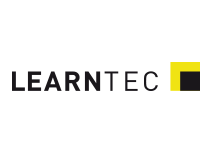Accessibility as a future topic in digital learning
Guest article contribution by M.I.T e-Solutions

For over five decades, M.I.T e-Solutions has been shaping the digital education landscape and supporting companies and institutions in the development of modern learning opportunities. One key issue that will continue to gain importance in the coming years is accessibility: by 28 June 2025 at the latest, when the Accessibility Enhancement Act (BFSG) comes into force, private companies will also have to comply with the requirements of the Barrier-Free Information Technology Ordinance (BITV 2.0) and the WCAG.
These legal requirements present organisations with new challenges, but also offer opportunities. Accessibility is not just about technical compliance, but also about participation, diversity and sustainability. Digital learning opportunities that are accessible to all increase acceptance, motivation and learning success. These include fully keyboard-operable interfaces, scalable font sizes, clear contrasts, subtitles and transcripts for videos, and high compatibility with screen readers and mobile devices.
A project by the Training Academy of the Ministry of the Interior of North Rhine-Westphalia (FAH) shows how this can be implemented in practice. The aim was to strengthen the intercultural competence of administrative staff. Based on expert input from the FAH, M.I.T developed a five-module e-learning programme with supplementary explanatory videos. In addition to high-quality content, the project placed particular emphasis on accessibility – implemented using the company's own authoring tool, WBTplus. The result not only impressed the participants, but also received the Comenius EduMedia Seal of Quality.
Standard e-learning courses will also have to be accessible in future. For this reason, the LONA course library, which contains more than 250 digital training modules, is being gradually revised accordingly. The compliance courses are already fully accessible and can be used on mobile devices. This includes a current course on the EU AI Act, which shows companies in a practical way how to classify and apply their AI systems in accordance with the law.
Accessibility in digital learning is an ongoing process and should be approached strategically. Companies that design their learning programmes to be inclusive not only ensure their legal compliance, but also invest in sustainable continuing education concepts. This requires expertise, structured concepts and an awareness that digital education is only sustainable if it is accessible to all.
Further information is available at: Weitere Informationen unter: www.mit.de

